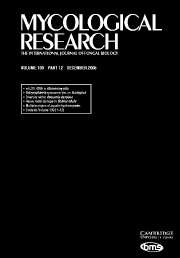No CrossRef data available.
Abstract
This new feature in Mycological Research is introduced, and invitations to contribute to it are made. It introduces the contents of the issue, draws attention to exciting research published elsewhere, and will also include comments on papers previously published in Mycological Research.
This month Mycological Research includes papers which report a 20 million year old resinicolous ascomycete, contribute to the molecular biology and phylogeny of Antrodiella, Serpula, Trichoderma, Typhula, and Uncinula, marine ascomycetes, and conidial smut fungi. Magnesium tolerance, phosphatase activity in endomycorrhizal fungi, and Tolypocladium as an entomopathogen are also featured. One new genus and five species new to science are described. An obituary for G. C. Ainsworth is provided.
Recent research is reported on here which demonstrates that pyrenomycete fungi evolved earlier than previously documented, studies on tropical palms which suggest there may be even more fungi than we suspected, and a group of hitherto undetected ascomycetes with naked asci living inside discomycete apothecia has been discovered. Proposals to streamline aspects of botanical (including mycological) nomenclature have been thwarted at the XVI International Botanical Congress in St Louis.
- Type
- Mycological Research News
- Information
- Copyright
- © The British Mycological Society 2000


